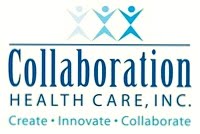
When you are in the middle of a fight, very seldom to you ever stop, assess, and confirm that you remember why you are fighting in the first place. Most of the time we just keep on fighting.
That’s what we’re doing with health care. Even though legislation has been passed to change the way things work, we’re just continuing to fight because many adamantly disagree with the approach that is being used to make the changes and most don’t really understand what is going on. If you didn’t understand the health care system before- you really don’t understand it now. If we don’t change, it is very likely the end-result will cost a lot more and create more damage before we are through. The health care debate has become a part of a much deeper discussion our country is having with itself and still hasn’t quite figured out the right answer.
Atul Gawande’s June 1, 2009 New Yorker article had quite an influence on getting us where we are today. (It’s a good article- You can link to it Here) Sometimes it’s important to step back and reflect on why this fight started in the first place.
The health care system Gawande describes is influenced by many different incentives both internally created and externally driven. The influence of the incentives and the personal make-up of the health care stakeholders determine the type of health care system that is developed in a local community. The health care system then determines the economics (how much it costs and how it is delivered). Gawande believed the health and age of a population have little to do with significant variations in the cost of health care we are experiencing today; it’s the system used to deliver health care that really matters.
Yes, critics have challenged some of the facts but the challenges don’t erase the picture of health care the article constructs. The challenges don't negate the reality.
Even as we continue to fight about it, we should also take some time to step back and reflect on the health care system described by Gawande almost 3 years ago. We need to take a moment and remember what we’re fighting for- and hope we are making some progress to come to a solution as we fight.
That’s what we’re doing with health care. Even though legislation has been passed to change the way things work, we’re just continuing to fight because many adamantly disagree with the approach that is being used to make the changes and most don’t really understand what is going on. If you didn’t understand the health care system before- you really don’t understand it now. If we don’t change, it is very likely the end-result will cost a lot more and create more damage before we are through. The health care debate has become a part of a much deeper discussion our country is having with itself and still hasn’t quite figured out the right answer.

Atul Gawande’s June 1, 2009 New Yorker article had quite an influence on getting us where we are today. (It’s a good article- You can link to it Here) Sometimes it’s important to step back and reflect on why this fight started in the first place.
The health care system Gawande describes is influenced by many different incentives both internally created and externally driven. The influence of the incentives and the personal make-up of the health care stakeholders determine the type of health care system that is developed in a local community. The health care system then determines the economics (how much it costs and how it is delivered). Gawande believed the health and age of a population have little to do with significant variations in the cost of health care we are experiencing today; it’s the system used to deliver health care that really matters.
Yes, critics have challenged some of the facts but the challenges don’t erase the picture of health care the article constructs. The challenges don't negate the reality.
Even as we continue to fight about it, we should also take some time to step back and reflect on the health care system described by Gawande almost 3 years ago. We need to take a moment and remember what we’re fighting for- and hope we are making some progress to come to a solution as we fight.
At this point, the progress seems questionable.






